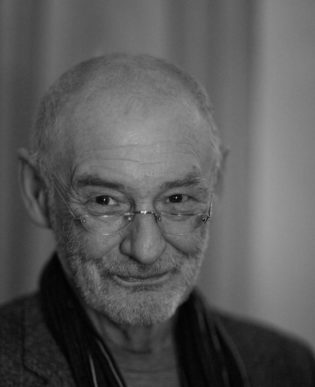To the death of Dietmar Steiner (1951-2020)
With Dietmar Steiner, the internationally debated architecture and urban planning culture loses one of its pioneers, and the Schelling Architekturstiftung loses the curator who has accompanied them from the Eurocentric debates to a global perspective. Born in 1951, Dietmar Steiner studied architecture with Ernst A. Plischke and Gustav Peichl, among others. However, his irrepressible curiosity and thirst for discussion predestined him for tasks that were less a matter of building practice than of developments, topic searches – also in connection with the big questions about architecture and the city. Whether as the author of harsh criticisms or as a debator in committees, juries, editorial conferences, at congresses and as a curator, and finally as a museum director: With clear positions and with never-ending commitment, he involved himself above all to ecological and socio-political aspects of building in a global, political and economic way determined context.
In 2005, the Schelling Architecture Foundation was lucky to have won him as a member of the board of curators for its architecture and theory awards. With knowledge that he had acquired thanks to many trips around the world and in his function as the founding director of the Architekturzentrum Wien, Dietmar Steiner shaped the foundation’s path to becoming an international force with a seismographic effect.
With his laudation for the 2006 award winners, Anne Lacaton & Jean Philippe Vassal, over a decade ago he pointed out that a new generation of architects was starting to turn away from the star cult in favor of global responsibility. In 2008, however, his appreciation of Friedrich Achleitner also expressed his motivation based on deep local and historical knowledge, which in 2016, when he retired from his professional life, was manifested in the simple dictum “At the end: architecture”. Dietmar Steiner campaigned for award winners such as Wang Shu & Lu Wenyu or Diébédo Francis Kéré and also initiated lively discussions in the field of architecture theory, in which the Schelling Architecture Foundation was able to feed on its passion for architecture beyond all mainstream for over a decade.
